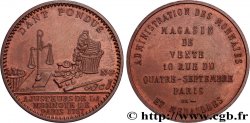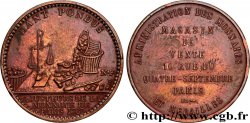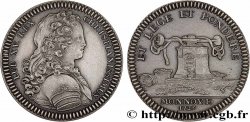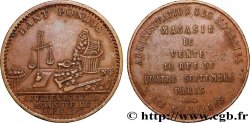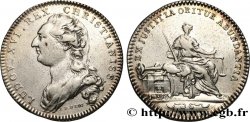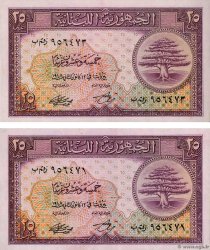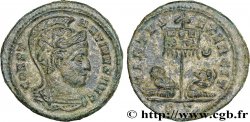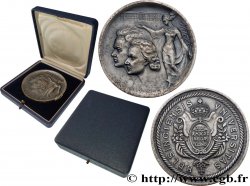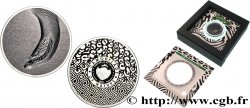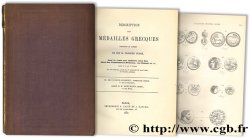fjt_272621 - MONNAIE DE PARIS COMMISSION MONÉTAIRE 1891
250.00 €(Approx. 295.00$ | 217.50£)
Quantity
Add to your cart

Type : COMMISSION MONÉTAIRE
Date: 1891
Metal : silver
Diameter : 33,50 mm
Orientation dies : 12 h.
Edge : lisse
Rarity : R3
Obverse
Obverse legend : ET LEGE ET PONDERE ; À L'EXERGUE : LOI DU 31 JUILLET 1879.
Obverse description : Balancier monétaire. Auprès de la base, une corbeille remplie de monnaies.
Obverse translation : Et par la Loi et par le poids.
Reverse
Reverse legend : COMMISSION DE CONTROLE - CIRCULATION MONETAIRE DANS LE CERCLE EXTÉRIEUR / MR SCHUTZENBERGER DÉSIGNÉ PAR L’ACADÉMIE DES SCIENCES.
Commentary
C’est bien entendu le jeton classique de la Monnaie de Paris avec le balancier monétaire qui a servi pour fabriquer ce jeton mais pour le revers il faut noter la disposition en cercle avec le titre générique à l’extérieur et les informations spécifiques à l’intérieur. C’est une disposition qui permet à partir d’un seul coin de frapper plusieurs variétés de jetons en changeant le centre et cela nous fait penser que ce jeton aura servi de jeton d’identification pour les membres de la commission et donc que chacun est unique.
On peut comprendre que la Monnaie ait mis les petits coins dans les grands pour les membres de la Commission chargée de contrôler son efficacité.
Concernant le personnage , il s’agit certainement du découvreur de l’acétate https://fr.wikipedia.org/wiki/Paul_Sch%C3%BCtzenberger
Époque étrange où l’on pouvait avoir tant de titres éminents dans tant de domaines différents !.
It is of course the classic token of the Monnaie de Paris with the monetary balance which was used to manufacture this token but for the reverse it is necessary to note the arrangement in circle with the generic title on the outside and the specific information on the inside. It is an arrangement which allows from a single die to strike several varieties of tokens by changing the center and this makes us think that this token will have served as an identification token for the members of the commission and therefore that each one is unique. We can understand that the Mint put the small coins in the large ones for the members of the Commission responsible for controlling its effectiveness. Concerning the character, it is certainly the discoverer of acetate https://fr.wikipedia.org/wiki/Paul_Sch%C3%BCtzenberger Strange time where one could have so many eminent titles in so many different fields!
On peut comprendre que la Monnaie ait mis les petits coins dans les grands pour les membres de la Commission chargée de contrôler son efficacité.
Concernant le personnage , il s’agit certainement du découvreur de l’acétate https://fr.wikipedia.org/wiki/Paul_Sch%C3%BCtzenberger
Époque étrange où l’on pouvait avoir tant de titres éminents dans tant de domaines différents !.
It is of course the classic token of the Monnaie de Paris with the monetary balance which was used to manufacture this token but for the reverse it is necessary to note the arrangement in circle with the generic title on the outside and the specific information on the inside. It is an arrangement which allows from a single die to strike several varieties of tokens by changing the center and this makes us think that this token will have served as an identification token for the members of the commission and therefore that each one is unique. We can understand that the Mint put the small coins in the large ones for the members of the Commission responsible for controlling its effectiveness. Concerning the character, it is certainly the discoverer of acetate https://fr.wikipedia.org/wiki/Paul_Sch%C3%BCtzenberger Strange time where one could have so many eminent titles in so many different fields!







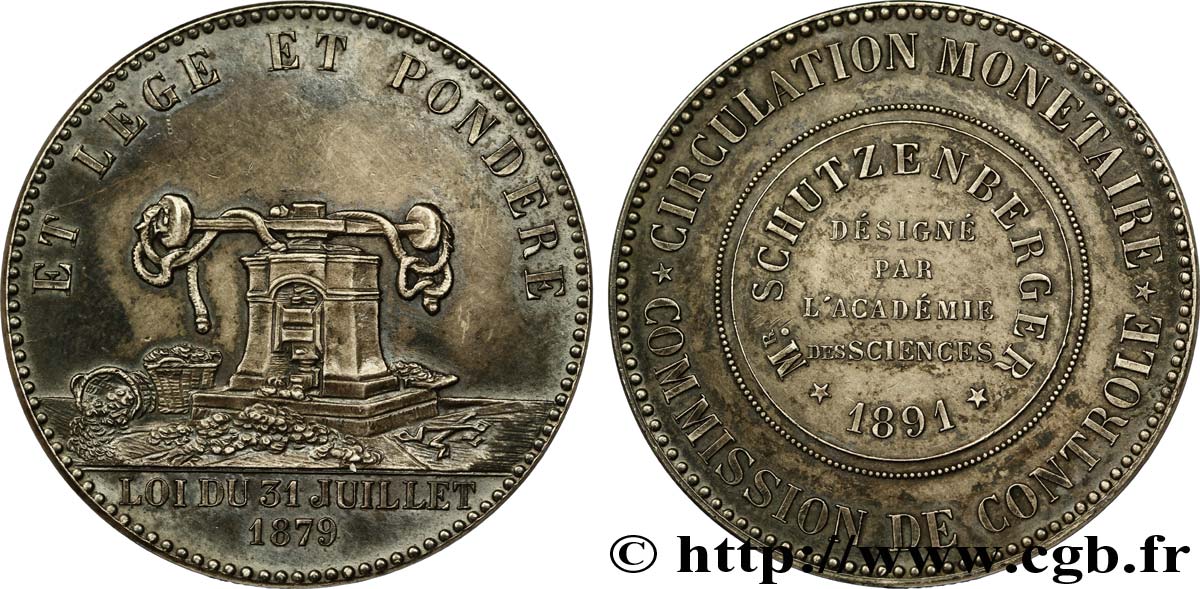
 Report a mistake
Report a mistake Print the page
Print the page Share my selection
Share my selection Ask a question
Ask a question Consign / sell
Consign / sell
 Full data
Full data